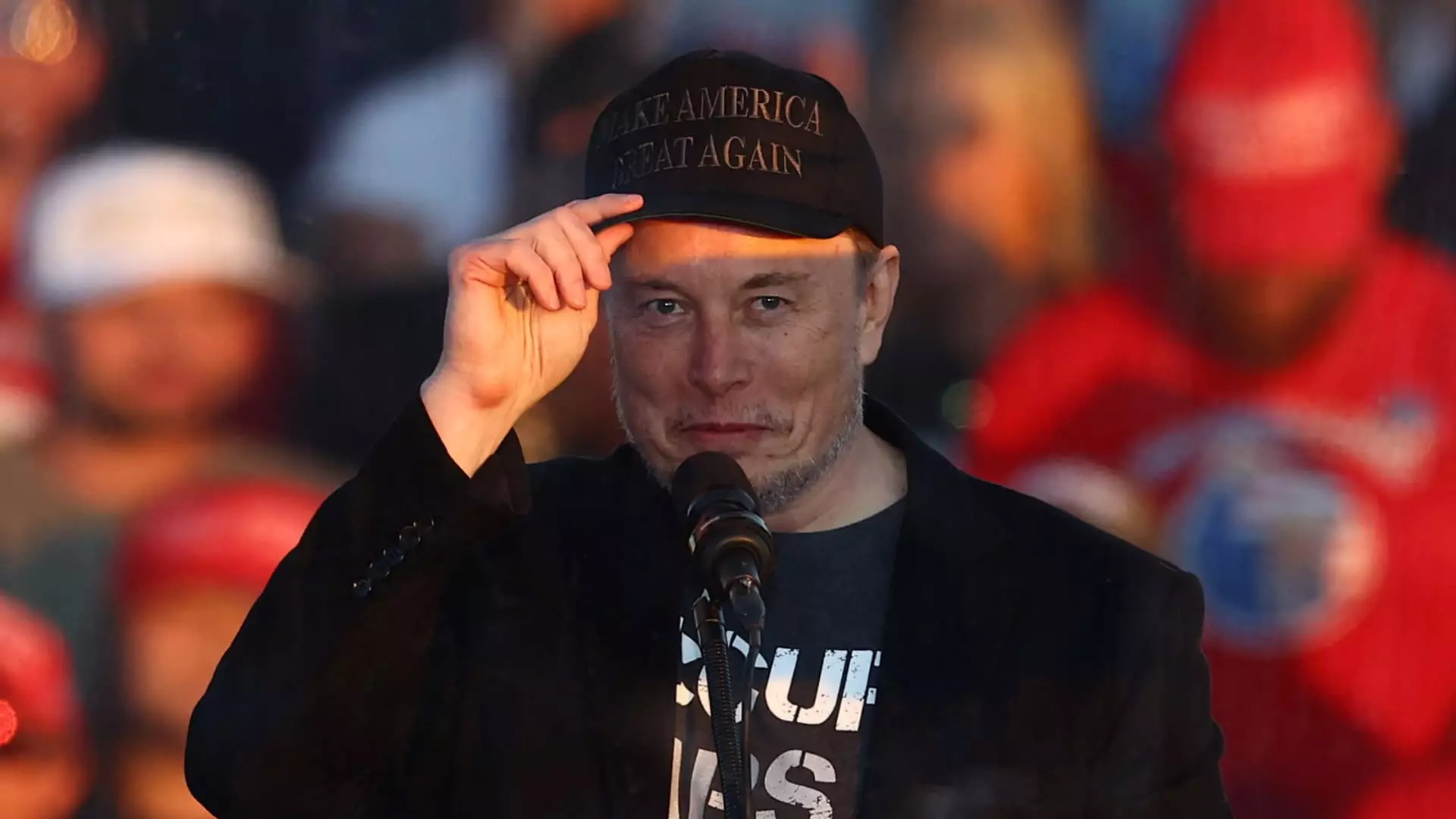Elon Musk, the billionaire entrepreneur known primarily for his contributions to the automotive and space industries, has recently stepped into the political arena with a contentious endorsement of Germany’s far-right Alternative for Germany (AfD) party. This unexpected public declaration has stirred conversations across the political spectrum, showcasing Musk’s influence not only as a business mogul but also as a significant figure in global politics. By publicly supporting the AfD, Musk raises critical questions about the intersections between business, politics, and ideology.
The endorsement came through a post on X, where Musk stated, “Only the AfD can save Germany.” Such statements from an influential figure like Musk carry substantial weight, particularly given his vast follower base of over 200 million. His comments echo sentiments from far-right elements, presenting him as an ally to movements that advocate for nationalistic and often anti-establishment ideologies. The motivations behind Musk’s endorsement warrant scrutiny, particularly within the context of Europe’s evolving political landscape.
The AfD has faced significant criticism for its extremist views, including a historical connection to white nationalism. The party’s ideology has often aimed to reshape Germany’s political narrative and revive sentiments reminiscent of the Nazi era. This association has led many, including politicians like Senator Chris Murphy, to denounce Musk’s support, arguing that it lends legitimacy to what they consider dangerous ideologies. The AfD has garnered attention for its controversial positions, notably its denial of climate change and opposition to military support for Ukraine, reflecting a broader skepticism regarding environmental regulations and foreign policy interventions that have characterized global responses to crises.
Musk’s advocacy for the AfD also aligns with his previous endorsements of right-wing leaders in various countries, including Italian Prime Minister Giorgia Meloni and UK politician Nigel Farage. These patterns of support raise concerns about the potential ramifications for democracy in Europe, particularly as right-wing parties continue to gain traction. The economies of countries that adopt such political stances may be influenced by an adherence to ideology over pragmatism, potentially jeopardizing established alliances and economic cooperation.
At a time when Germany prepares for pivotal elections, the AfD’s rise in popularity reflects a discontent within the populace, one that has found voice in nationalist rhetoric. Despite Musk’s claim regarding the AfD as Germany’s savior, many analysts question the viability and implications of the party’s platform, especially amid existing challenges such as climate change and the integration of technology in the automotive sector. While the AfD has criticized Tesla’s operations, suggesting that the influx of workers from regions outside Brandenburg undermines local economic benefits, Musk’s entrepreneurial vision propels innovation and challenges traditional automotive paradigms.
Notably, Germany’s political landscape has seen the collapse of left-wing coalitions. This volatility accentuates the need for a robust, centrist response to avoid fragmentation that could favor far-right agendas. Chancellor Olaf Scholz has firmly rejected Musk’s assertion, advocating for a more inclusive and progressive vision for Germany’s future. The critique from Scholz highlights the urgency of countering extremist rhetoric with policies focused on communal benefits and social responsibility—tenets that have defined Germany’s post-war liberal democracy.
Elon Musk’s engagement in international political matters represents a growing trend of billionaire influence in governance. While public figures possess the right to express their opinions, the impact of their endorsements should be considered with great caution. The case of Musk endorsing the AfD illustrates the potential consequences of aligning with extremist ideologies, particularly in democracies facing the challenges of polarization and populism.
As European countries navigate complex sociopolitical environments, the adoption of a responsible discourse is essential. It is vital for public figures, regardless of their wealth or influence, to understand the implications of their endorsements and the narratives they help propagate. In doing so, they contribute to the shaping of society’s values and ultimately influence the direction of democratic governance.


Leave a Reply
You must be logged in to post a comment.